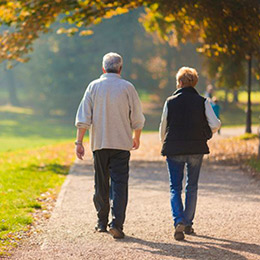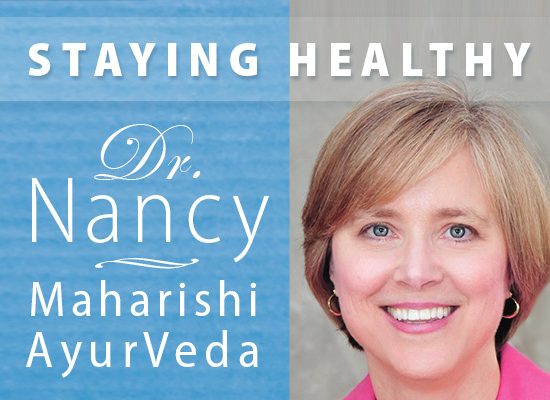Were you lucky enough as a kid to have parents or caregivers telling you when to go to bed at night, and putting food on the table at a set time? Then you may have effortlessly imbibed how much a regular daily schedule can ease the stress of everyday life and work to keep your body in balance.
With record rates of obesity, diabetes, heart disease, depression, and sleep problems among all ages, health experts are struggling to identify causes and cures. Beyond the well-known diet and exercise factors, researchers in the burgeoning new field of “chronobiology” are beginning to discover the powerful influence that timing plays in maintaining health and vitality throughout our lives.
Researchers in the burgeoning new field of “chronobiology” are beginning to discover the powerful influence that timing plays in maintaining health and vitality throughout our lives.
The Power of Timing
I personally discovered the health implications of timing back in 1969, being driven home with my girlfriends after our first sleep-over and feeling—physiologically speaking—utterly miserable. I vowed then and there that I would never stay up that late again.
Alas, medical school and my residency forced me to renege on my promise. Nevertheless I continue to appreciate how much better I feel—mentally, emotionally, and physically—after a good night’s sleep, especially one started by about 10:00 p.m.
While I was studying at Stanford and doing an elective in India, I learned that the ancient health system of Ayurveda had divined this chronobiological wisdom over 5,000 years ago! Ayurveda teaches that everyone—whether you’re a night owl or a morning lark—benefits from early bedtime and getting up with the birds.

Our bodies follow a rhythmic pattern of physiological activity throughout the 24-hour cycle
The Ayurvedic Rishis, or enlightened seers, discovered the laws of nature that govern health with regard to diet, herbs, and lifestyle—the health tools available in 3,000 BCE. They clearly described that our bodies follow a rhythmic pattern of metabolic, hormonal, and physiological activity throughout the 24-hour cycle.
The modern revival of Ayurveda by leading Ayurvedic physicians and scholars under the inspiration and guidance of Maharishi Mahesh Yogi, Founder of the Transcendental Meditation® (TM®) technique, is called Maharishi AyurVeda®. As the complete restoration of Ayurveda according to the authentic texts, Maharishi AyurVeda also recognizes the importance of keeping the body in tune with nature’s cycles. In addition, it includes Consciousness-Based® approaches such as the TM technique to enliven our body’s inner intelligence.
As the earth turns on its axis, it rotates us towards or away from the warm, nourishing rays of the sun. According to Ayurveda, our bodies respond with corresponding 24-hour rhythms that determine the optimal time of day to eat our biggest meal, go to bed, get up in the morning, and exercise.
When we do these activities at the “right time,” in alignment with our body’s natural biorhythm, we feel our best and move through the day with the least effort and stress. Just as riding the waves in the ocean is easier (and more fun!) than swimming against the current, so is following a daily schedule that’s in sync with our body’s natural cycles.
As the earth turns on its axis, it rotates us towards or away from the warm, nourishing rays of the sun. Our bodies respond with corresponding 24-hour rhythms that determine the optimal time of day to eat our biggest meal, go to bed, get up in the morning, and exercise.
In my 30-year medical practice, I have repeatedly seen validation of the Ayurvedic guidelines for when to eat, sleep, and exercise through my patients’ reports of how much better they feel when they follow a schedule. Now I am delighted to find that research in the pioneering field of chronobiology is validating many of these Ayurvedic concepts.
In Sync with Our Biorhythms for Better Sleep, Digestion, Exercise
I recently took an informal poll of 15 to 20 people, about half of whom described themselves as night owls and half as morning larks. When I inquired about how well they slept at night, nearly all of the morning larks who go to bed early slept well, and less than half of the night owls claimed good sleep. Although this is informal, anecdotal research, it reflects what I commonly see in my practice.

There are many benefits to a daily schedule in sync with natural biorhythms
One of my patients, a woman several years past menopause, wrote me to say that she had slept poorly for years and simply resigned herself to the idea that “this was menopause,” and she’d probably never sleep well again.
The day she learned about going to bed early as a better sleep strategy, she returned from a business trip and, instead of her usual routine of unpacking and organizing late into the night, she turned in by 10:00 p.m. Guess what? In her words, she “slept like a baby.” This hadn’t happened for years!
There are many everyday examples of the wonders of a daily schedule in sync with natural biorhythms, but let’s look at the research.
First, here are the three key Ayurvedic schedule recommendations for good health:
1. Go to bed (lights out!) by 10:00 p.m.
2. Eat your main meal by 12:00 to 1:00 p.m.
3. Exercise in “Kapha time,” 6:00 to 10:00 in the morning or evening.*
Maharishi AyurVeda also recommends regular practice of the Transcendental Meditation technique as a foundation for good health, sleep, digestion, and more. What I hear from my newly meditating patients is that it becomes easier for them to do the right thing for their health, including eating, sleeping, and exercising.
Maharishi AyurVeda also recommends regular practice of the Transcendental Meditation technique as a foundation for good health, sleep, digestion, and more.
For example, some patients have reported that alcohol or cigarettes no longer appeal to them, and they spontaneously quit. One student related how, after his TM instruction, he couldn’t do all-nighters to study anymore—he was just too acutely aware of the damage it was doing to his physiology. He said that he now plans ahead.
Data on the Benefits of Early Bedtime
In a U.S. National Longitudinal Study of Adolescent Health1, researchers compared students randomized to go to bed at 10:00 p.m. to students going to bed at midnight. The results showed students with a midnight bedtime were 24 percent more likely to be depressed and 20 percent more likely to have suicidal thoughts.
A further study showed early bedtime benefits were independent of the total number of hours of sleep. In addition, the effects were long-lasting: those going to bed before 11:15 p.m. in high school had better academic achievement and less emotional distress up to six years later.2 Watch my video “Cheat Sheet: When to Sleep” (2:42) to learn more.
Those going to bed before 11:15 p.m. in high school had better academic achievement and less emotional distress up to six years later.
Dinner at Noon, Like Those Close to the Land
When I was a kid, my rural classmates who lived on farms called our lunch meal “dinner,” and their evening meal at home “supper.” Now I understand why.

Have your main meal at noontime
Being more in tune with the land and nature, their families traditionally ate their main meal in the middle of the day, when our bodies most need and can best process a major intake of nutrition.
As a culture, we need all the help we can get to combat today’s epidemic of obesity and diabetes. Eating our main meal at noon is another way to do just that.
From my patients’ experience, I have found three key benefits from eating your biggest meal at lunchtime:
1. It helps prevent the late afternoon “munchies.”
2. It allows you to easily eat a lighter meal in the evening.
3. It supports better sleep.
Research corroborates my clinical observations. In a study of 420 subjects published in the International Journal of Obesity,3 two groups consumed the same amount of total calories. But the study showed that those randomized to eat the majority of their calories before 3:00 p.m. had more and quicker weight loss than those eating the majority of their calories after 3:00 p.m.
The researchers concluded that “novel approaches” to weight loss, including the timing of meals, should be considered in any weight loss program. To learn more, watch my video “Cheat Sheet: When to Eat” (3:09)—and bring on the midday dinner!
We Know We Should Exercise, but When?
First of all, when it comes to exercise, I like to tell my patients that exercise any time is better than not at all. But beyond that, there are healthier times to exercise in the daily cycle.

Exercise between 6:00 and 10:00 in the morning or evening
Ayurveda recommends exercising in the Kapha-predominant time of 6:00 to 10:00 in the morning or evening, with the morning being ideal. According to Ayurveda, during these times of day, Kapha—the physiological supersystem responsible for structure and substance—is predominant.
This is when the body tends to be more stable, resilient, and possibly a bit sluggish. Therefore, exercise during these times will both benefit the body most and offer the least likelihood of strain or injury. Watch my video, “The Importance of When You Exercise” (4:17), to learn more.
A fascinating study4 on people with early hypertension bears out this Ayurvedic recommendation. Researchers looked at the naturally occurring drop in blood pressure during sleep in relation to the timing of exercise. A greater drop at night predicts better heart health.
The subjects of the study did aerobic exercise at either 7:00 a.m., 1:00 p.m., or 7:00 p.m. The results were in line with the Ayurvedic recommendation of morning exercise at 7:00 a.m., which brought the greatest drop in systolic nighttime blood pressure, with deeper sleep being an added bonus.
Second place went to those exercising at 7:00 p.m., which resulted in the greatest drop in diastolic nocturnal blood pressure.
Those who exercised at 1:00 p.m. actually saw an inhibition of nighttime drop in blood pressure.
The bottom line? As Ayurveda recommends, “After lunch, rest awhile. After dinner, walk a mile.” It’s better to eat, rest, and digest at lunchtime, and leave the exercise for earlier or later in the day.
As Ayurveda recommends, “After lunch, rest awhile. After dinner, walk a mile.” It’s better to eat, rest, and digest at lunchtime, and leave the exercise for earlier or later in the day.
One Last Powerful Tip—a Morning Walk
Ayurveda highly recommends a morning walk for everyone as the best Rasayana, or rejuvenative behavior, for just about everything. Interestingly, this ancient recommendation is also supported by modern research. A recent study5 by Northwestern University looked at light exposure and its effect on the human body.

Take a morning walk to benefit from the morning sun
The researchers found that being outside in the morning appears to dramatically influence our metabolism for the entire day. They also discovered that people who get more morning light exposure are leaner and have less fat.
As much as 20 percent of our body mass and weight is determined by how much morning light we get. If we don’t get enough light in the morning, our body clock gets de-synchronized and alters our metabolism. When that happens, even if we eat the same amount of food, we tend to gain more weight.
The researchers concluded that being outdoors in the morning—for at least 20 minutes—is beneficial for weight maintenance. For more on this principle, watch my video “The Power of the Morning Walk” (3:24) and my article “Take a Morning Walk to Lose Weight, Feel Great.”
Add the extra benefit of walking to your morning “sun time,” and you’ve got a doubly-powerful technique for good health!
The researchers concluded that being outdoors in the morning—for at least 20 minutes—is beneficial for weight maintenance.
Ride the Waves
Riding the waves of a good daily routine can fortify and protect us from the hustle, bustle, and stress of everyday life. Now that you know nature’s ideal schedule, you can truly “go with the flow” and enjoy better sleep, mood, weight, digestion, and heart health as you cruise through your days with the help of nature’s wisdom fully supporting your health, happiness, and rejuvenation.
Thank you, Maharishi AyurVeda, for putting it all together!
Now that you know nature’s ideal schedule, you can truly “go with the flow” and enjoy better sleep, mood, weight, digestion, and heart health.
References
1. Gangwisch, JE, et al, “National Longitudinal Study of Adolescent Health, USA, 1994-1996; Sleep, Vol. 33, No. 1, 2010.
2. Asarnow, Lauren D. et al., The Effects of Bedtime and Sleep Duration on Academic and Emotional Outcomes in a Nationally Representative Sample of Adolescents, Journal of Adolescent Health, Volume 54, Issue 3, 350–356.
3. Ordovás and F A J L Scheer, Timing of food intake predicts weight loss effectiveness. International Journal of Obesity 37, 604-611 (April 2013).
4. Fairbrother K, Cartner B, Alley JR, Curry CD, Dickinson DL, Morris DM, Collier SR. Effects of exercise timing on sleep architecture and nocturnal blood pressure. Vascular Health and Risk Management. Dec 12, 2014.
5. Reid K, Santostasi G, Baron KG, Wilson J, Kang J, Zee PC. Timing and intensity of light correlate with body weight in adults. PLOS One. April 2, 2014.
* If you have a health condition or take medication, please consult your physician before adopting any new exercise or dietary recommendations. Although unlikely, stop the above recommendations if any discomfort occurs.

Best-selling author Dr. Nancy Lonsdorf, M.D., has been an Ayurvedic practitioner for more than 30 years and is recognized as one of the nation’s most prominent Ayurvedic doctors. She teaches Maharishi AyurVeda® in affiliation with the Academy of Integrative Health and Medicine and the University of Maryland School of Medicine’s Center for Integrative Medicine. A frequent speaker on national media, she continues her private practice in integrative medicine and Ayurveda, including Wellness Consultations in person or by phone. For more information on Dr. Lonsdorf’s practice, visit www.drlonsdorf.com. To schedule an Ayurvedic Wellness Consultation by phone or teleconference, please contact Dr. Lonsdorf’s office at 641-469-3174 or healthoffice@drlonsdorf.com.
Copyright 2018, Nancy K. Lonsdorf, M.D., All rights reserved. Do not reproduce without written permission of the author.






Due to findings in chronobiology there is a discussion going on whether to start school one hour later, i.e. at nine a.m. instead of eight a.m. or earlier. What about early rising for students and teachers as promoted by Maharishi AyurVeda? – Thank you for the informative article! – Jai Guru Dev
I am a 42-year career musician. After spending my life recording, doing 40 city world tours, performing with Cirque de Soleil, etc, I find my body has found it’s own rhythm and it’s not what you are recommending. Nor any other performer. I was not happy, healthy, or wealthy living the way you are prescribing. Only following my instinct and training was I happy and prosperous. There isn’t just one way. Should all the orchestra players put down their instruments? All entertainers stop working?
Dear Ron and All Entertainers,
“My body has found its own rhythm” says it all. Ayurveda is not dogma. It does point the natural direction. But our bodies also can adapt. Performers’ schedules do not follow the usual laws of Nature, so over time, you adapt. I’m happy you feel well with your routine. Thank you for your question and giving me the opportunity to address the “exceptions.” You put it beautifully, and I wish you continued health, wealth, and happiness.
Dr. Nancy
Wow, I am feeling older. But conciousness seems good. I am deep, I think.
Best wishes Nancy. Kristi and I were smiling about your picture from 30 years ago. You sure have stayed young.
Thanks for sharing this and being in touch, Scott. So glad to hear you are doing well, and I hope you continue to enjoy the knowledge and thrive. Warmest regards to you and your family,
Thanks for your comment, Scott.
As the Editor of Enjoy TM News, I’m happy to report that Dr. Nancy Lonsdorf’s photo may look like it’s from 30 years ago, but it actually isn’t! She’s a living example of the health and vitality possible with long-term TM practice and Maharishi AyurVeda. All the best to you and yours.